Let’s talk about oatmeal — that humble, beige bowl of breakfast that somehow manages to be both comforting and controversial.
Some people swear by it, claiming it’s the holy grail of heart health, energy, and “I’ve got my life together” vibes. Others? Well, they’d rather chew cardboard than choke down another spoonful of mushy oats.
But here’s the thing: oatmeal is kind of a nutritional powerhouse. It’s been around forever, it’s easy to make, and it’s surprisingly versatile. Toss in some cinnamon, berries, or a sneaky scoop of peanut butter, and boom — you’ve got a breakfast that feels like a warm hug from your gut’s best friend.
That said, eating oatmeal every day isn’t always sunshine and steel-cut rainbows.
Sure, there are some legit benefits (hello, happy heart), but if you’re not careful, it might come with a few unexpected side effects too (bloating, we’re looking at you).
So before you commit to a lifelong relationship with your morning oats, let’s break down the good, the not-so-good, and the stuff no one tells you about eating oatmeal on the daily.
1. Improved Digestion
When you start your day with a warm bowl of oatmeal, your digestive system will likely thank you. Rich in soluble fiber, particularly beta-glucan, oats help keep things moving smoothly in your gut. This fiber acts like a gentle broom, sweeping through your intestines, aiding in regular bowel movements.
You might notice that you’re feeling less bloated and more regular. This is because the fiber in oatmeal adds bulk to your stool, making it easier to pass. Additionally, it can help prevent constipation, a common issue many face.
For those struggling with digestive woes, incorporating oatmeal into your daily diet might just be the natural remedy you need. It’s a delicious way to support your gut health without too much effort. Just remember to drink plenty of water to aid the process!
2. Lower Cholesterol Levels
Oatmeal isn’t just a comforting breakfast; it can be a heart’s best friend too. Thanks to the beta-glucan found in oats, daily consumption can contribute to lowering LDL cholesterol levels. This form of fiber forms a gel-like substance in the gut, which binds to cholesterol-rich bile acids, helping remove them from the body.
The result? Lower bad cholesterol levels and a reduced risk of heart disease. This positive side effect makes oatmeal a fantastic choice for those looking to improve their heart health naturally. Incorporating it into your daily routine can be an easy and tasty way to support your cardiovascular system.
Substitute your usual breakfast with a bowl of oatmeal, and enjoy the added benefit of a healthier heart. Pair it with fruits or nuts for an extra kick of flavor and nutrition.
3. Better Blood Sugar Control
Keeping your blood sugar in check is crucial, especially for those with type 2 diabetes. Oatmeal’s high fiber content ensures that digestion is a slow and steady process, preventing sudden spikes in blood sugar levels. By releasing sugar gradually into the bloodstream, oatmeal offers a more sustained energy source.
This slow release of sugar also means fewer cravings and a more balanced mood throughout the day. It’s a simple dietary adjustment that can make a significant difference in how you feel and function. Enjoy it with a sprinkle of cinnamon for an added flavor boost and additional blood sugar benefits.
For anyone monitoring their glucose levels, making oatmeal a breakfast staple can provide peace of mind and better control over daily blood sugar fluctuations.
4. Weight Management
Feeling full and satisfied is key to managing your weight, and oatmeal can help with that. Its high fiber content ensures that you’re satiated for longer periods, reducing the chances of mindless snacking. This can lead to a natural reduction in daily calorie intake without feeling deprived.
For those on a weight loss journey, replacing a high-calorie breakfast with oatmeal might be the change needed. It’s a nutrient-dense option that provides energy and satisfaction, setting a positive tone for the day. Add some berries or a dollop of Greek yogurt for extra flavor and nutrition.
Making oatmeal a regular part of your morning routine can assist in achieving and maintaining a healthy weight. It’s a practical and tasty strategy for anyone looking to manage their weight effectively.
5. Heart Health Support
Your heart deserves all the love it can get, and oatmeal is here to help. Packed with fiber, antioxidants, and essential micronutrients like magnesium, oatmeal supports overall heart health. These components work together to reduce inflammation and improve blood vessel function.
Regular oatmeal consumption can lead to healthier arteries and a lower risk of cardiovascular diseases. It’s a heart-healthy habit that’s both delicious and easy to maintain. Enjoying a bowl of oatmeal in the morning can be a comforting ritual that benefits your heart.
For those concerned about heart health, adding oatmeal to your daily routine is a tasty way to show some love to your ticker. Pair it with heart-friendly toppings like almonds or bananas for added benefits.
6. Boosted Immune System
Oatmeal is not just a breakfast choice; it’s an ally for your immune system. The beta-glucan fiber in oats enhances the function of immune cells, helping them respond more effectively to infections. This means your body is better prepared to fight off common colds and other illnesses.
Including oatmeal in your daily diet can be a supportive measure for maintaining overall health and wellness. When your immune system is strong, you’re less likely to succumb to everyday germs and viruses. It’s a proactive approach to staying well, especially during flu season.
By making oatmeal a breakfast staple, you’re giving your immune system a reliable boost. Consider adding some citrus fruits or honey for an antioxidant-rich, immunity-supporting breakfast option.
7. Bloating or Gas
Suddenly upping your intake of oatmeal can cause your gut to grumble. The increase in fiber, though healthy, might lead to bloating or gas as your digestive system tries to adjust. Your body may need some time to get used to processing more fiber, so start slow if you’re new to oatmeal.
You might feel a bit puffy or have an upset stomach initially. However, this side effect is usually temporary and diminishes as your system gets accustomed to the new routine. Staying hydrated can help ease these symptoms, so make sure to drink plenty of water.
If bloating persists, consider reducing your intake or eating smaller portions more frequently until your body adapts. It’s a small bump on the road to a happier, healthier gut.
8. Potential Weight Gain (if overly sweetened)
Oatmeal can be a double-edged sword when it comes to weight. While its fiber content is great for keeping you full, adding too many sugary or fatty toppings can transform a healthy breakfast into a calorie-laden treat. If you’re not mindful, your morning oatmeal could lead to unwanted weight gain.
To keep your oatmeal healthy, avoid pouring on the sugar, syrup, or high-calorie additives. Instead, opt for natural sweeteners like fruits or a sprinkle of cinnamon. Simple swaps can keep your oatmeal nutritious without sacrificing flavor.
Paying attention to portion sizes and toppings can ensure that oatmeal remains a beneficial part of your diet. A bit of awareness goes a long way in keeping those extra pounds at bay while still enjoying a delicious breakfast.
9. Phytic Acid Interference
Oatmeal contains phytic acid, a compound that can interfere with the absorption of certain minerals, such as iron and zinc. For most people with a balanced diet, this isn’t a significant concern. However, if you heavily rely on oats and have a diet lacking in other nutrient sources, it might be worth considering.
The presence of phytic acid means that while you’re enjoying your oatmeal, you might not be getting the full benefit of some minerals. This doesn’t mean cutting out oats, but rather being mindful of incorporating a variety of nutrient-rich foods.
Balancing your oatmeal intake with other foods rich in iron and zinc can help mitigate this effect. Consider pairing your oats with vitamin C-rich fruits to enhance mineral absorption.
10. Gluten Sensitivity Concerns
While oats are naturally gluten-free, not all oat products are safe for those with celiac disease or gluten intolerance due to potential cross-contamination. During processing, oats might come into contact with gluten-containing grains, posing a risk for sensitive individuals.
It’s important to choose oats specifically labeled as gluten-free if you’re avoiding gluten for health reasons. Checking labels and brand reliability can ensure that you’re enjoying your oatmeal without unexpected digestive issues.
For those with gluten sensitivity, awareness and careful selection can help keep oatmeal a safe and enjoyable part of your diet. Whether you’re making overnight oats or a warm bowl for breakfast, gluten-free options are available to suit your needs.
11. Overdependence on a Single Food
Having oatmeal every day might lead to a rather monotonous breakfast routine. While oats are nutritious, relying on them too heavily can limit your intake of other important nutrients. Variety in your diet is key to covering all nutritional bases and keeping meals exciting.
It’s easy to fall into the oatmeal trap, but incorporating different grains or breakfast choices can provide a broader range of vitamins and minerals. Experimenting with quinoa, buckwheat, or even an occasional smoothie can break the monotony.
Enjoying oatmeal is great, but make sure you’re mixing things up to avoid missing out on other dietary benefits. Keeping your meals diverse ensures you’re getting all the nutrients your body needs to thrive.
12. Possible Blood Sugar Spike (if instant or flavored)
Opting for instant or flavored oatmeal might seem convenient, but it can lead to unexpected blood sugar spikes. These products often contain added sugars and are more processed, leading to quicker digestion and a rapid rise in blood glucose levels.
For those monitoring their blood sugar, this can be a concern. Choosing plain, whole oats allows you to have better control over what goes into your breakfast, helping avoid unwanted spikes. Sweeten it naturally with fruits or spices instead.
Switching from instant to whole oats can make a noticeable difference in how balanced your blood sugar feels throughout the day. It’s a simple change that supports better metabolic health while still enjoying a comforting bowl of oatmeal.

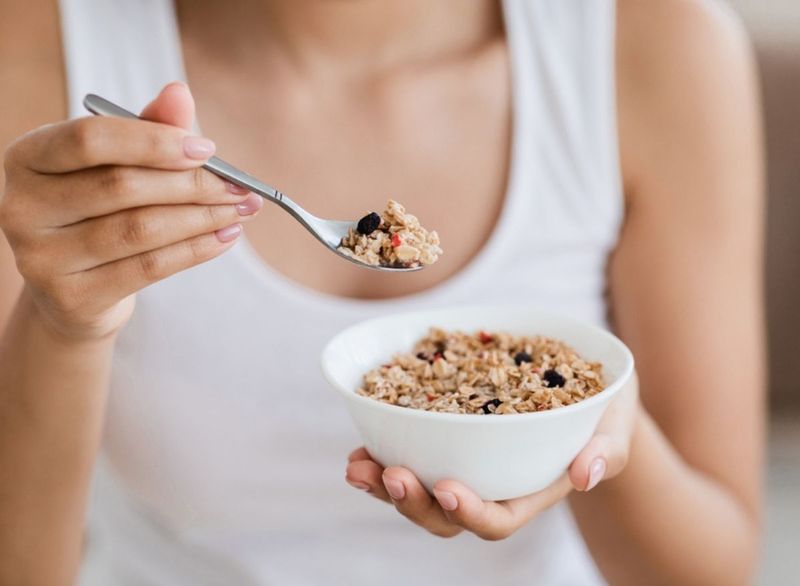
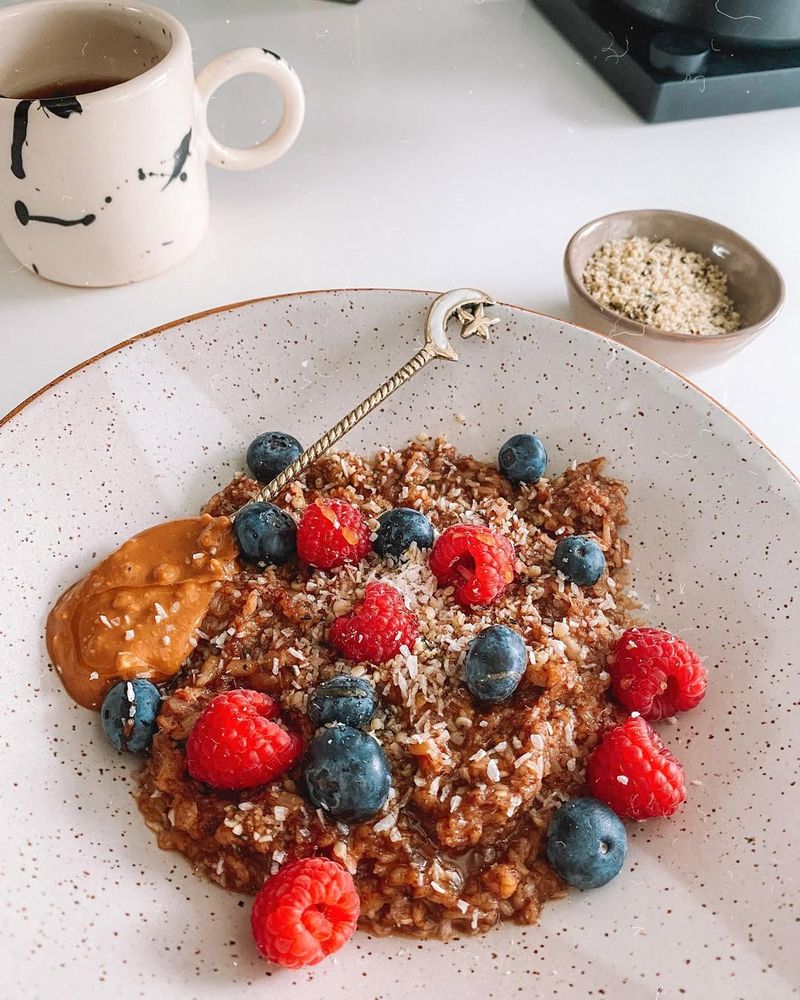



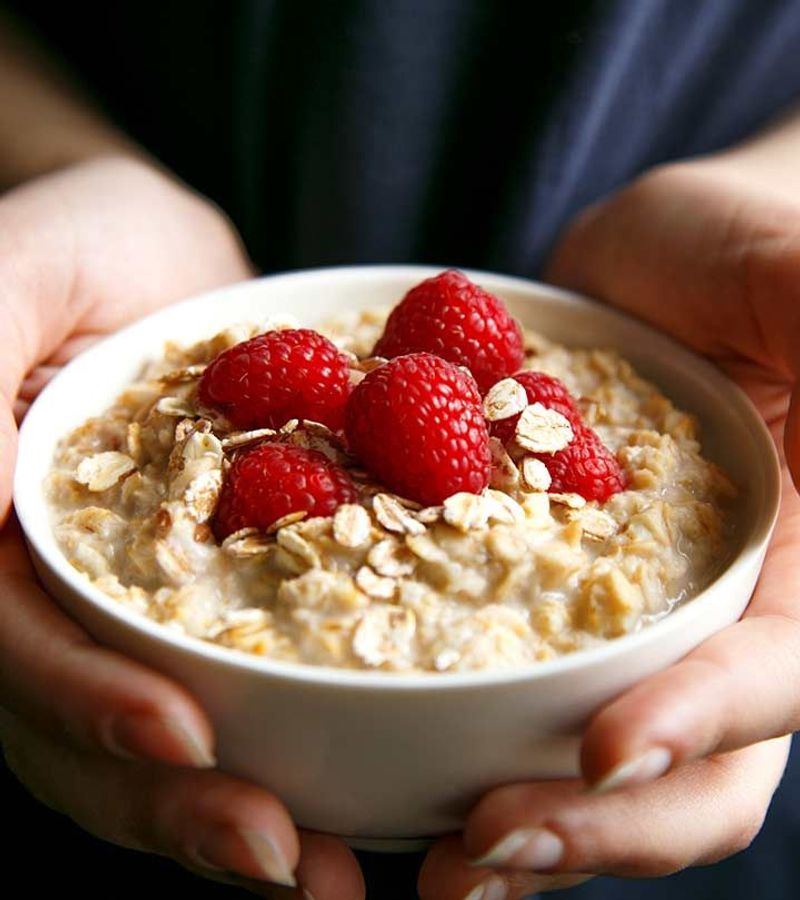

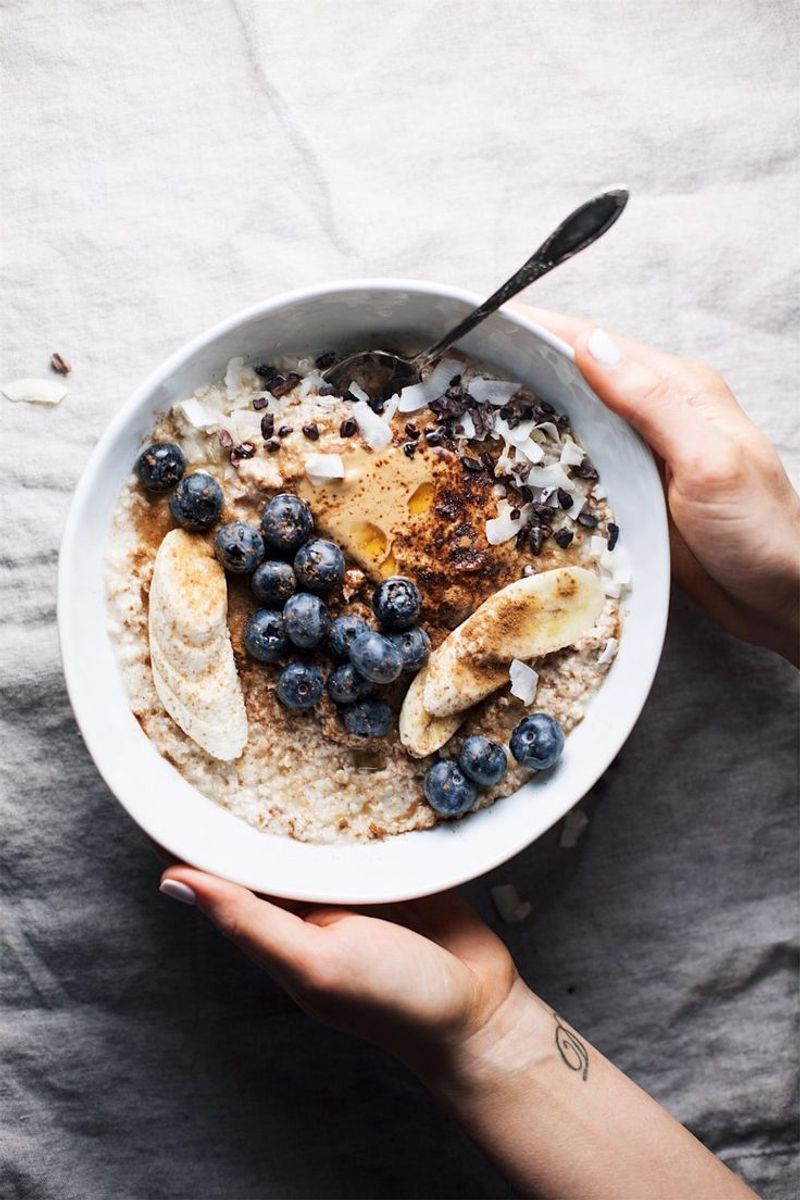


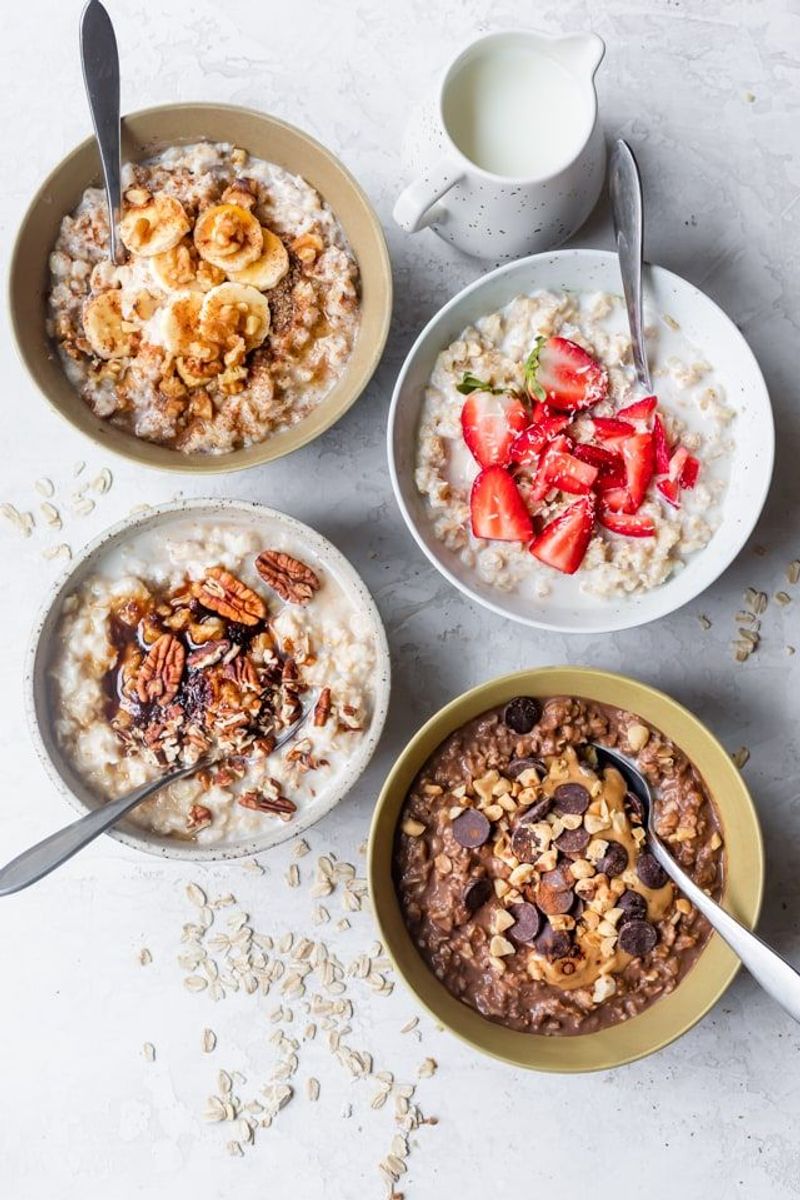
Leave a comment